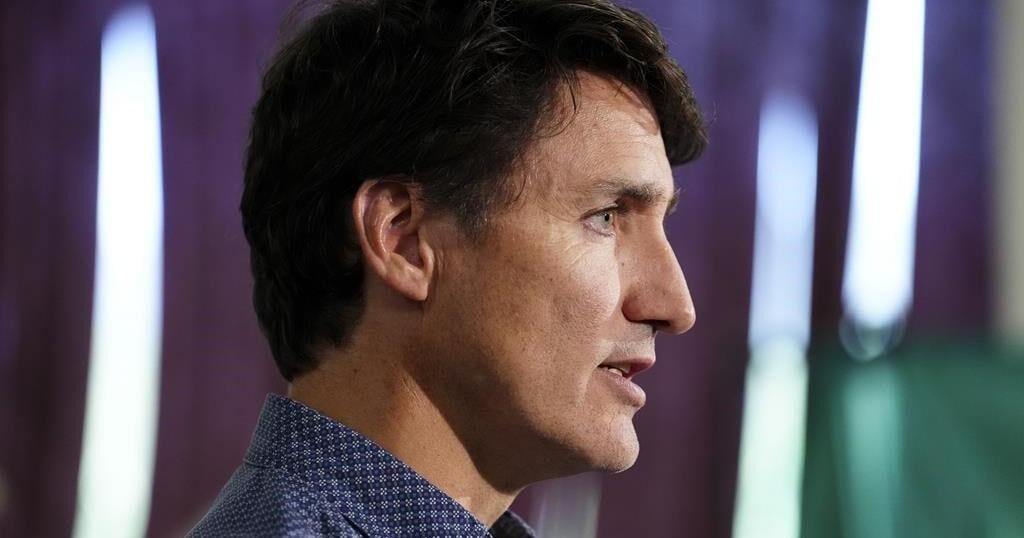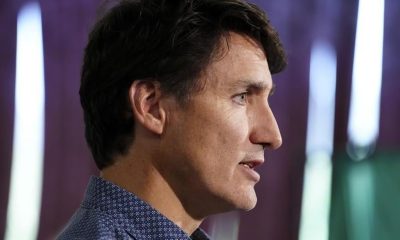LETHBRIDGE, Alta. – Two men have been sentenced to 6 1/2 years in prison for their roles in the blockade of the Canada-U.S. border crossing at Coutts, Alta.
Anthony Olienick showed no emotion while Chris Carbert appeared glum and folded his arms, as the sentence was read out in Court of King’s Bench on Monday.
Neither are to serve their full sentences, as Justice David Labrenz gave them nearly four years credit for time they have already spent in custody.
Both were convicted of mischief and possession of a firearm dangerous to the public peace, while Olienick was also found guilty of possession of a pipe bomb.
A jury found them not guilty of the most serious charge they faced — conspiracy to murder police officers at the blockade.
The blockade halted traffic at the border crossing for two weeks in 2022 in a protest of COVID-19 rules and vaccine mandates.
The men were charged after RCMP found guns, ammunition and body armour in trailers near the blockade.
Labrenz said while the men believed their cause just, they can’t be allowed to take the law into their own hands.
“Both Olienick and Carbert used the blockade as a last stand against police,” the judge said in his sentencing decision.
“(They) knew they were actively participating in something that was illegal, but they didn’t care because they thought their cause had been worthy.”
He added, “The law does not allow people to take the law into their own hands.
“Both men bear a high degree of moral culpability.”
Olienick and Carbert have been in custody since they were arrested in February 2022.
Prior to sentencing, they were given a chance to address the court.
Carbert declined, but Olienick said he is a better man as a result of his time in custody.
“It has given me time to indulge in God’s work,” he said, reading from a prepared statement.
“I will continue to help others.”
Olienick was given six years for possession for the firearms conviction, a concurrent six-month sentence for mischief and an additional six months for possession of a pipe bomb.
Carbert was given 6 1/2 years for the firearms offence and a concurrent six-month term for mischief.
The Crown had argued the two men should serve nine-year prison sentences.
“Mr. Carbert and Mr. Olienick believed they were at war. They were prepared to die for their cause. The very real risk is that a firefight would have occurred,” Crown prosecutor Steven Johnston told the sentencing hearing in August.
“It sounds like something we hope doesn’t happen in our country. But the reality is it did, and it happened in southern Alberta.”
Defence lawyers for the two had urged the judge to sentence the men to time already served.
Two other protesters charged with conspiracy to commit murder at the blockade pleaded guilty earlier this year to lesser charges.
Christopher Lysak was sentenced to three years for possession of a restricted firearm in an unauthorized place. Jerry Morin was sentenced to 3 1/2 years for conspiracy to traffic firearms.
Those sentences amounted to time the men had already served.
This report by The Canadian Press was first published Sept. 9, 2024.














